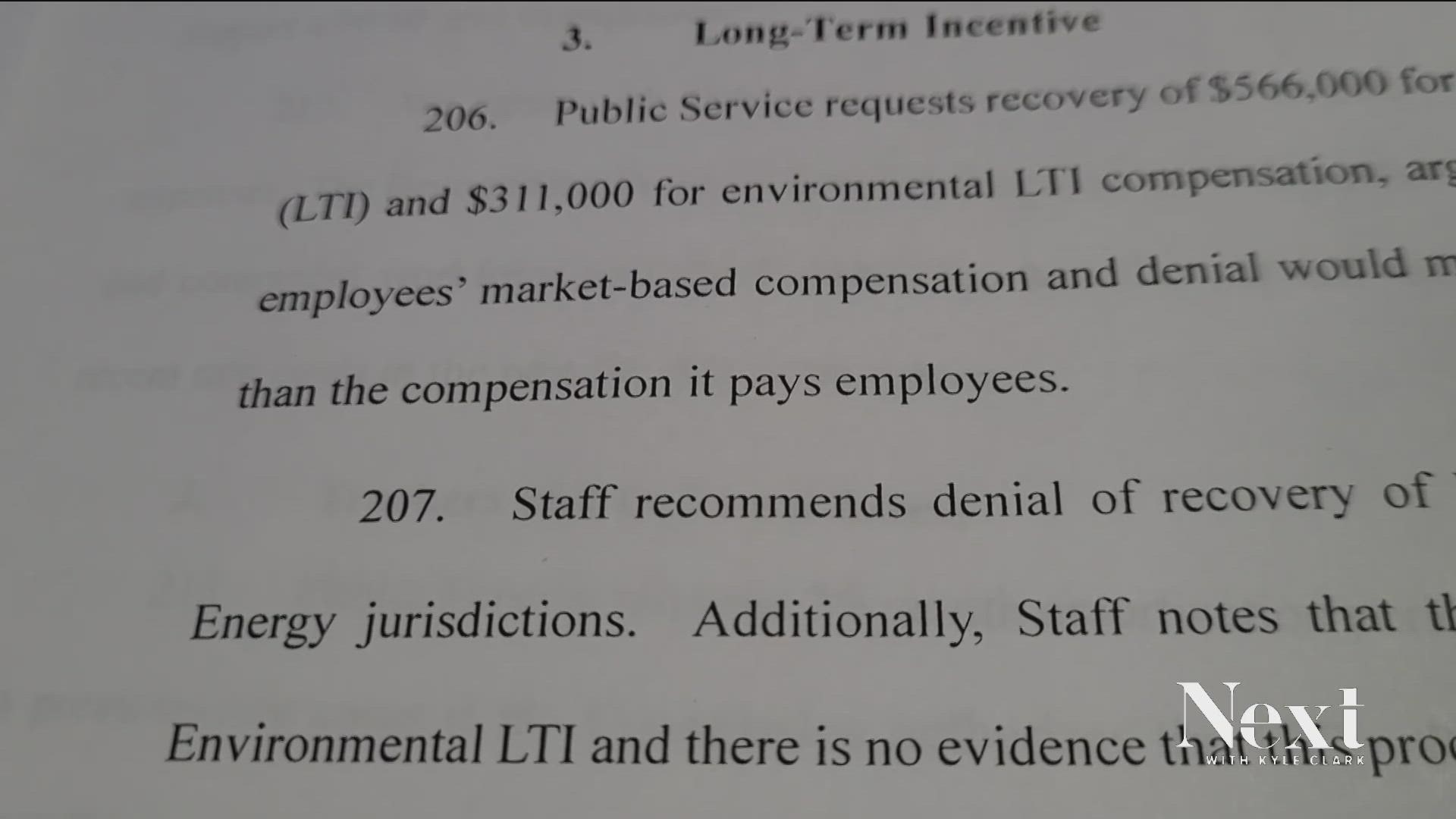DENVER — There is a slight decrease coming to your Xcel bill. Xcel paid less for gas than it expected, so you also pay less.
Gas companies make projections three months ahead, and get approval for the cost of fuel they believe they will spend.
When the amount is less than the company ends up needing, ratepayers still have to pay the company the difference when the next gas adjustment is approved by the Public Utilities Commission (PUC). When the amount is more than the company needs, ratepayers get their gas bills lowered with a slight amount of interest.
Many Next viewers have asked if the PUC ever says no when Xcel wants to raise rates.
"I don't think I've ever seen the PUC say no to a rate hike,” said Jon Ecklund, an Xcel customer in Westminster.
James in Arvada and Phil and Mary in Littleton also wanted to know if the PUC ever said no.
“Sometimes we win, sometimes we lose, but I think the point is to provide the oversight and to make the company answer the questions,” said Erin O’Neill, chief economist for the PUC.
Before the PUC makes a decision on rate increase requests, they hear from Xcel, PUC staff, the Office of the Utility Consumer Advocate (UCA) and other groups who want to be heard. It's a nine-month proceeding that feels similar to a lawsuit proceeding. And the PUC gets drowned in paper.
“That’s probably a reasonable estimate, 10,000 pages of information,” O’Neill said. “A lot of our exercise is show us your design, show us your receipts. We want to check and make sure that it made sense, that this was the least cost way to provide this service.”
Last year, the PUC approved an Xcel gas rate increase of $64.2 million.
However, Xcel originally requested $214 million.
Yes, the PUC does say no, line-by-line.
"[The PUC] have been whittling down that overall return that the company gets,” O’Neill said.
In this past rate case, the PUC said no to $150 million in requests. For instance, Xcel may argue for a 10% return on equity, a profit for shareholders, while the PUC staff and UCA may argue for a lesser percentage. The PUC ultimately decides.
“Those are the bulk of the reductions in that $150 million decrease, and then there’s a lot of little items, investments that were questionable. Equity compensation, rate case expenses,” O’Neill said.
"Rate case expenses" refers to the $2.2 million Xcel requested to cover the cost of outside legal fees that the company spent to argue for the rate increase. The PUC approved $2 million.
Equity compensation refers to a $254,000 request to provide Xcel’s Board of Directors added perks.
The PUC said no to half of the amount, writing in the final decision, "a sharing of compensation expense between investors and ratepayers is appropriate.”
Xcel requested $4.4 million for annual incentive pay for its employees. The PUC rejected $900,000 of that request.
There was another request totaling $877,000 for long-term incentives for Xcel employees.
Xcel argued, “denial would mean [Xcel] is recovering less than the compensation it pays employees."
The PUC rejected the full amount.
“About a million-and-a-half to two million was cut off the total equity compensation piece,” O’Neill said.
The parts of your gas bill that make up the “base rate” are the “service and facility” charge and the “usage charge.”
Service and Facility
“It’s your meter, it’s the line to your house, it’s a little bit of billing department,” O’Neill said.
This portion of the bill is where Xcel gets paid back dollar-for-dollar for non-investment expenses.
“It’s, sort of, just the general day-to-day expenses of running your business. It’s your employees, you’re filling your trucks with gas,” O’Neill said. “It’s not an investment, it’s not a piece of equipment in the ground, it’s just all the other expenses.”
Usage Charge
The “usage charge” includes the expenses that Xcel is allowed to profit on.
“Everything that goes into rate base must be used and useful. If you have a piece of equipment sitting around that the company doesn’t need anymore, it isn’t actually using, it isn’t being useful to ratepayers, so it should not be part of that list of stuff that you get earned on. Only the stuff the company is actually using to the benefit of ratepayers to provide service gets included in rate base,” O’Neill said. “That’s all the pipes, all the trucks, that’s all the power plants, all the transmission lines, all the distribution lines, all the regulators, all the pumps, all the valves.”
Part of your bill also includes funding the PUC.
That cost is paid to Xcel and passed on to the state to fund the PUC.
“I would argue, if you will indulge me for just a minute, that if it wasn’t in your utility bill, it would be in your taxes,” O’Neill said. “And by putting it in your utility bill, we are collecting it from the customers on whose benefit we’re working.”
Want to be heard by the PUC? Use this form from the PUC website.
Want to be heard by the UCA, basically your public defender against utility companies? Use this form from the UCA website.
SUGGESTED VIDEOS: Your Xcel bills

